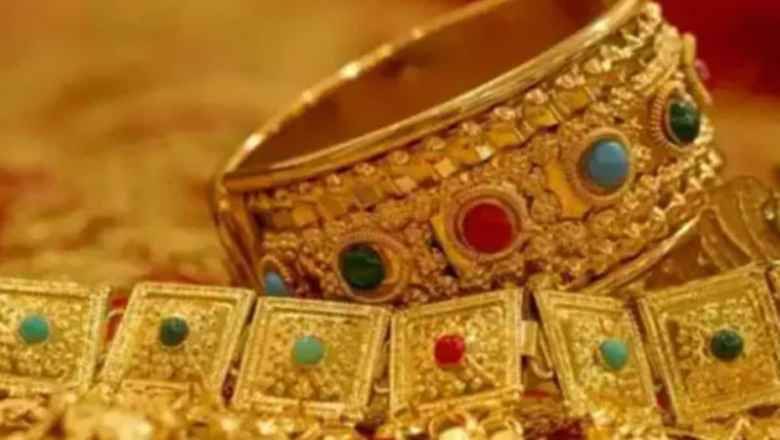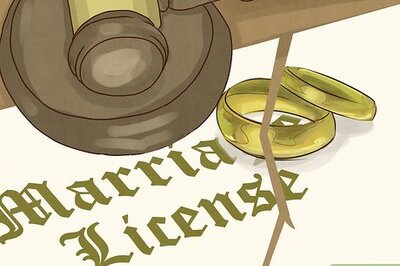
views
Buying gold during the festive season in India is a common tradition, especially during events like Dhanteras, Diwali and weddings. People also buy the golden metal during the festive season because it is a time when there are many sales and promotions on gold jewellery. Jewellers often offer discounts and other incentives to attract customers during this time of year.
Gold is also seen as a safe and valuable investment, especially in times of economic uncertainty. Buying gold during the festive season is considered as another way to save for the future and to pass on wealth to future generations.
However, there are certain things to keep in mind before buying gold this festive season in India;
Purity of Gold:
Gold is measured in carats, with 24 carats being pure gold. Ensure you are aware of the purity of the gold you are buying. Common purities include 24, 22, and 18.
Check for hallmarking on the gold jewellery, which indicates that it has been certified for purity.
Gold is typically sold in India in 22 or 24 purity. 24 carat gold is the purest form of gold, but it is also very soft and not suitable for making jewellery. 22 carat gold is a good compromise between purity and durability. You can check the purity of the gold by asking the jeweller for a certificate of authenticity or by testing it at a government-approved assaying centre.
Current Market Prices:
Stay updated on the current market prices of gold. Prices can fluctuate due to various factors, including global economic conditions. Knowing the current rates will help you assess whether the price you are being quoted is reasonable.
Making Charges:
In addition to the gold’s weight and purity, you’ll also be charged for making the jewellery. This cost can vary among jewellers. Negotiate making charges to ensure you are getting a fair deal.
Bill and Receipt:
Always ask for a detailed bill and receipt. This document should include information on the gold’s purity, weight, making charges, and the total amount paid. Keep the bill safely for future references, especially if you plan to sell or exchange the jewellery.
It is important to get a receipt from the jeweller after you purchase gold jewellery. The receipt should include the following information:
- The date and time of purchase
- The weight of the gold
- The purity of the gold
- The making charges
- The total price
- The buyback policy
BIS Hallmark:
Look for the BIS (Bureau of Indian Standards) hallmark on the gold jewellery. This indicates that the jewellery meets the standards set by the BIS for purity. Hallmarked jewellery is generally considered more reliable.
Check Policies and Certifications:
Inquire about the jeweller’s return or exchange policies. It’s crucial to know the terms and conditions in case you want to return or exchange the jewellery. Some jewellers may provide certificates for diamonds or other precious stones embedded in the jewellery. Ensure you receive these certificates.
Secure Payment:
Use secure payment methods when making a purchase. Avoid making large transactions in cash, and opt for digital payment modes or checks. If you are making a significant purchase, consider using a credit card for additional security and potential benefits.
Compare Prices:
Visit multiple jewellers to compare prices and quality. This will help you make an informed decision and get the best value for your money.
Making Timely Payments:
If you are making a booking or advance payment, ensure that you are aware of the timeline for completing the transaction. Delays may lead to changes in the gold price.
Stay Informed:
Keep yourself informed about any government regulations or changes in taxation related to gold purchases. This can impact the overall cost of buying gold.
Buying gold is a significant investment, and being well-informed can help you make a wise and satisfying purchase.




















Comments
0 comment